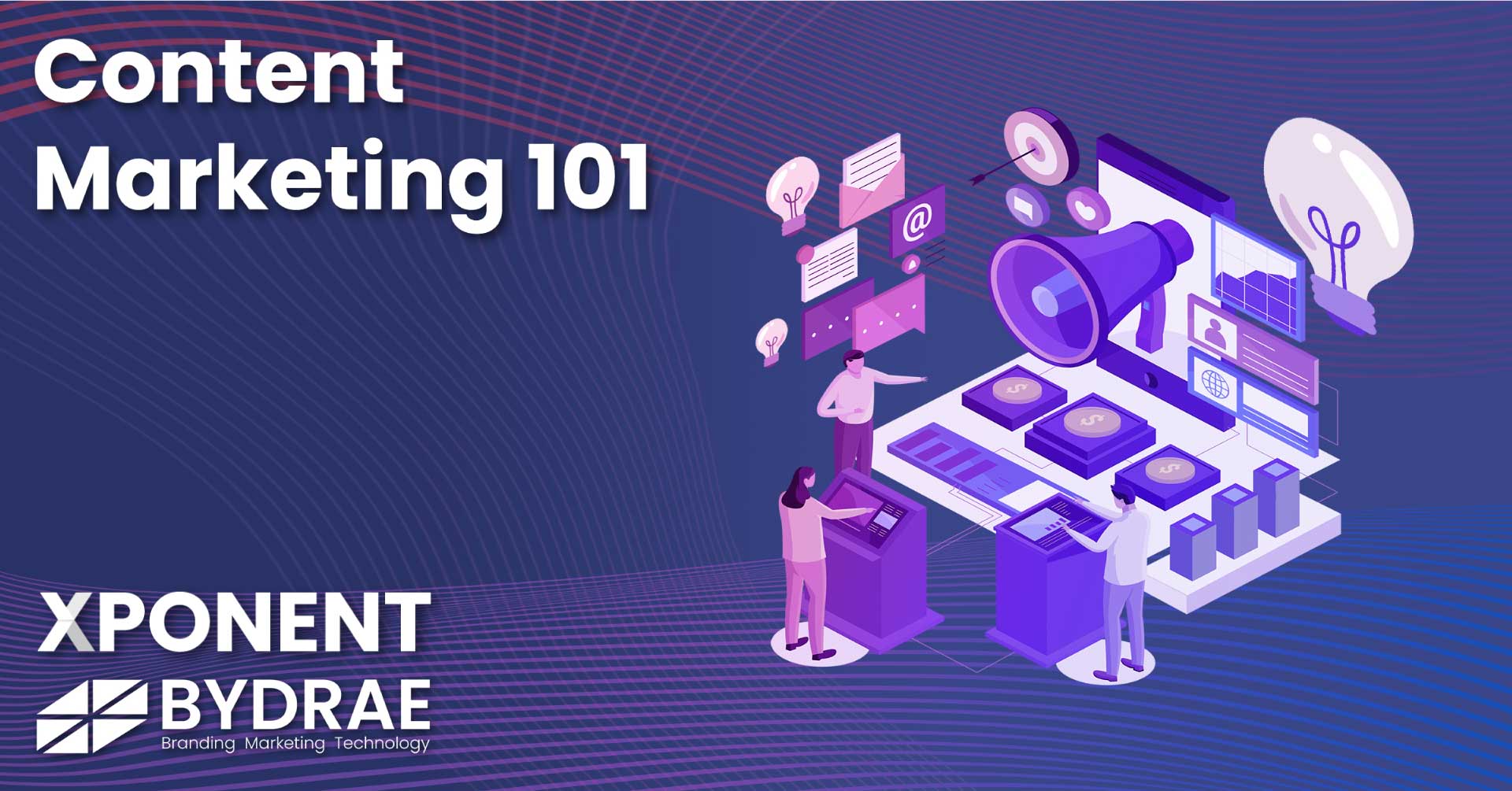Content Marketing for your Business
Content marketing takes a deep look into the strategy creation process, innovation and building of unique experiences that provide value to our audiences.
Content marketing is about using data to drive your marketing decisions. This means translating data into a creative process that your marketing team can follow and implement.
Audiences differ dramatically from brand to brand, and taking careful consideration to learn about your audience can help you create content that brings page visits and converts to sales.
Finding the perfect balance of creativity and analytics is key to success in this area.
Digital Content Basics
All content marketing starts with adequate research. Research helps one find relevant topics and keywords. Creation and innovation are equally as important.
Innovation links to optimising content, analysing content and measuring its impact. There is no point in creating stellar content if one cannot measure the content’s impact.
Xponent specialises in digital content marketing for B2B companies who want to generate relevant leads consistently. Xponent coordinates and implements world-class digital marketing solutions in South Africa.
Content Writing and Copywriting
Content writing and copywriting are slightly different. With content writing, you want to educate or entertain readers by creating high-quality and valuable content. We want audiences to return to our websites. Content writing forms a large part of that dynamic. Content writing can include copy being written for blog posts, e-books, tutorials and email newsletters.
Copywriting involves the creation of text content to persuade readers to take some type of action related to your business’s sales process. If you’re trying to sell a product, you need to convince potential customers that it’s worth buying.
Copywriters specialise in writing copy predominantly for advertising, PPC and PPC landing pages, social media adverts and product pages.
These lines can blur in the professional arena. Content writers can be excellent copywriters and vice verca. Being a good, consistent writer matters a lot in content marketing.
Writing well can accelerate your career quite significantly. An effective writer can distil complex thoughts and ideas into simple, clear language easily understood by others.
SEO AND SEM in Content Marketing
In a nutshell, SEO (Search Engine Optimisation) is organic marketing, and SEM (Search Engine Marketing) is paid marketing. Those two topics deserve an article for themselves, but it comes down to a few basic rules and applications.
SEO
SEO is the art and science of persuading search engines to recommend your content to their users. There are four pillars of SEO: Technical SEO, off-page SEO, on-page SEO and content.
Technical SEO focuses on improving the technical structure of a website. It improves site speed, mobile-friendliness, crawlability, structured data, security, and indexing.
Off-page SEO focuses on improving the technical structure of a website. At the same time, on-page SEO looks at optimising factors on the web page that help search engines understand the content.
Content is one of Google’s main ranking factors. Without great content that appropriately matches the searcher’s intent.
SEM
SEM is a paid tactics strategy to gain visibility on search engines. It is also known as PPC (pay-per-click).
These campaigns include Search Ads (text ads), Shopping Ads, Display Ads, and YouTube Ads. SEMs usually begin a campaign with comprehensive keyword research and competitor insights to create targeted campaigns.
Combining Creativity and Analytics
Creativity and data are often regarded as conflicting concepts. This means that embracing one would imply the abandonment of the other. “Few people see the possibility of embracing both at the front lines of marketing,” says Marion K Nowak, (former) Creative Lead at Xponent.
Data analytics help problem identification and information searching. It assists with idea generation, idea selection and communication. Marion continues, “at Xponent we strike a fine balance between our creative team’s input and analytic software to assist in generation, selection and communication”.
Creativity also helps agencies draw conclusions by promoting data visualisation, which facilitates drawing correct conclusions. “Because creatives are good at looking at a problem from divergent angles, they can help the analysts define a better question to start with, Marion concludes.
Get in touch with Xponent and start your marketing agency experience today.





